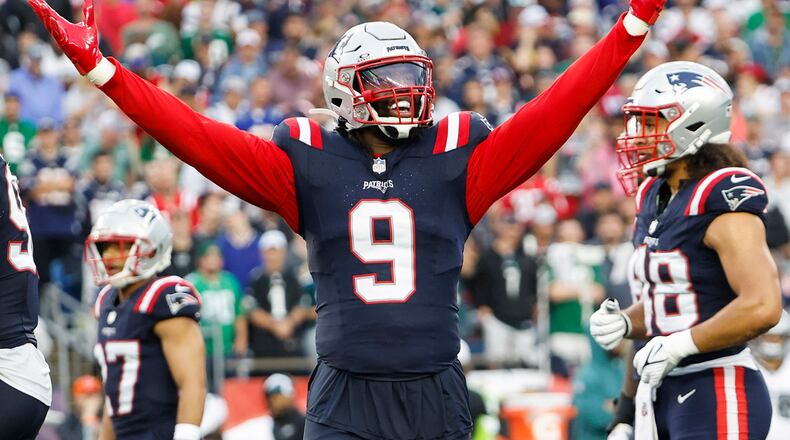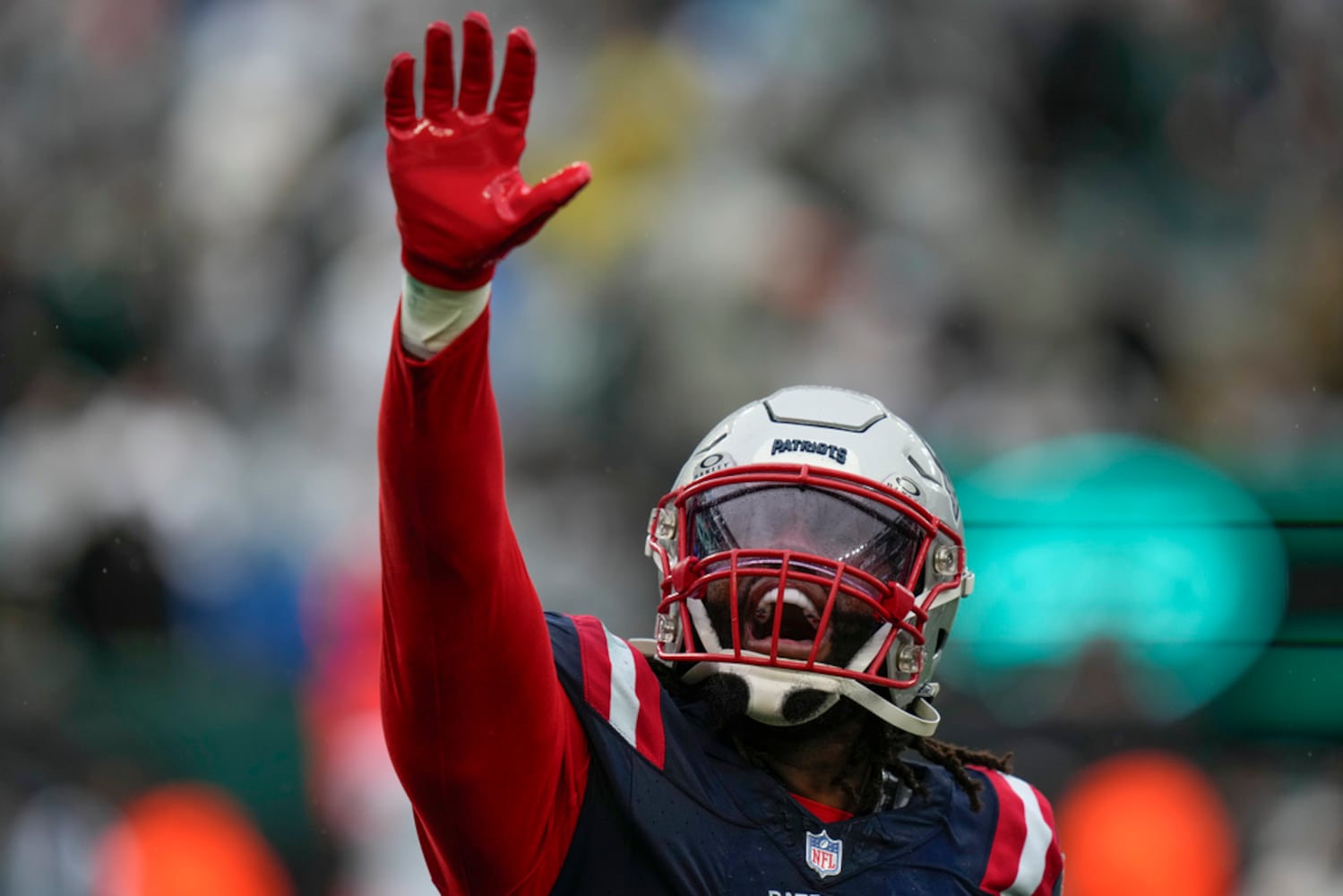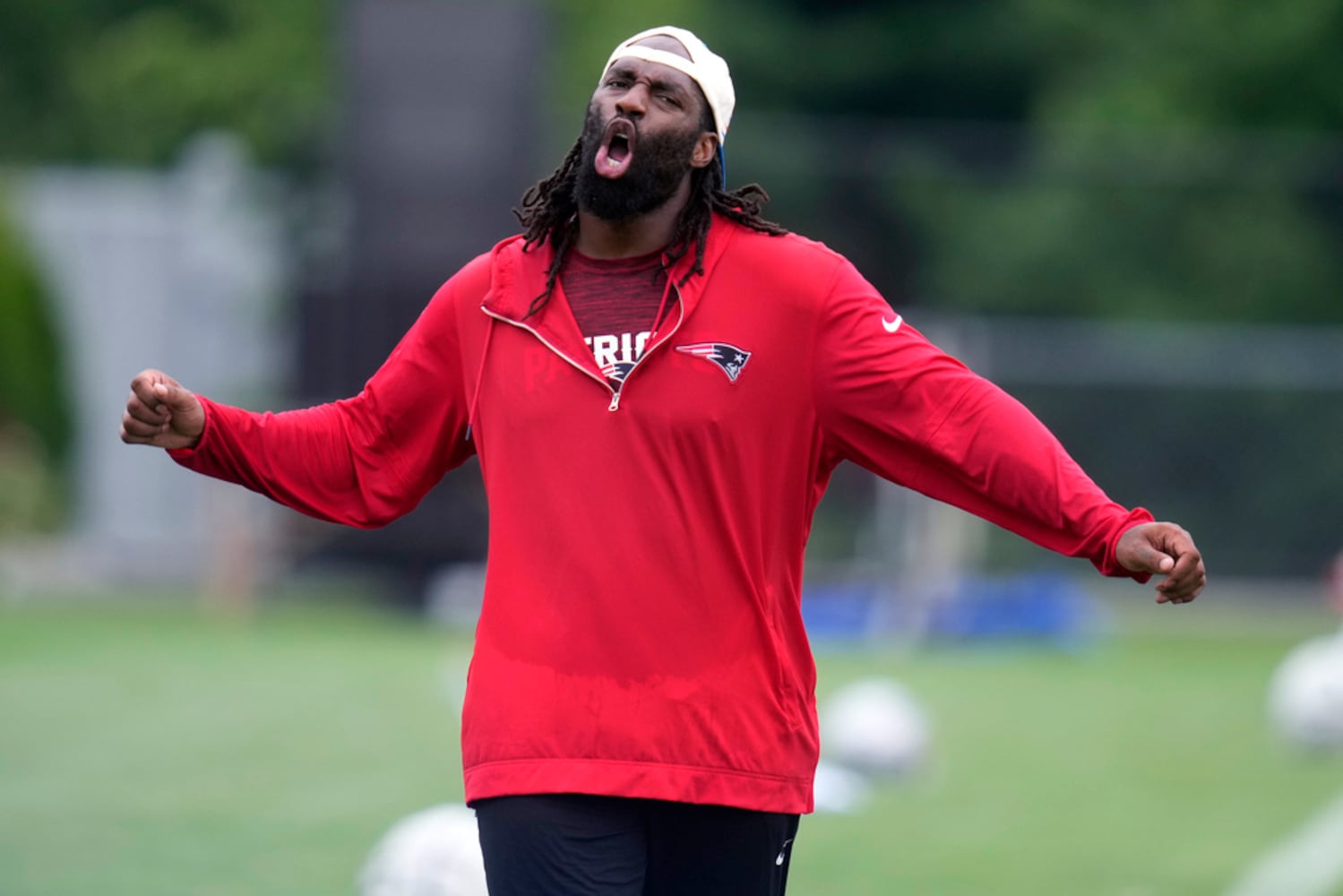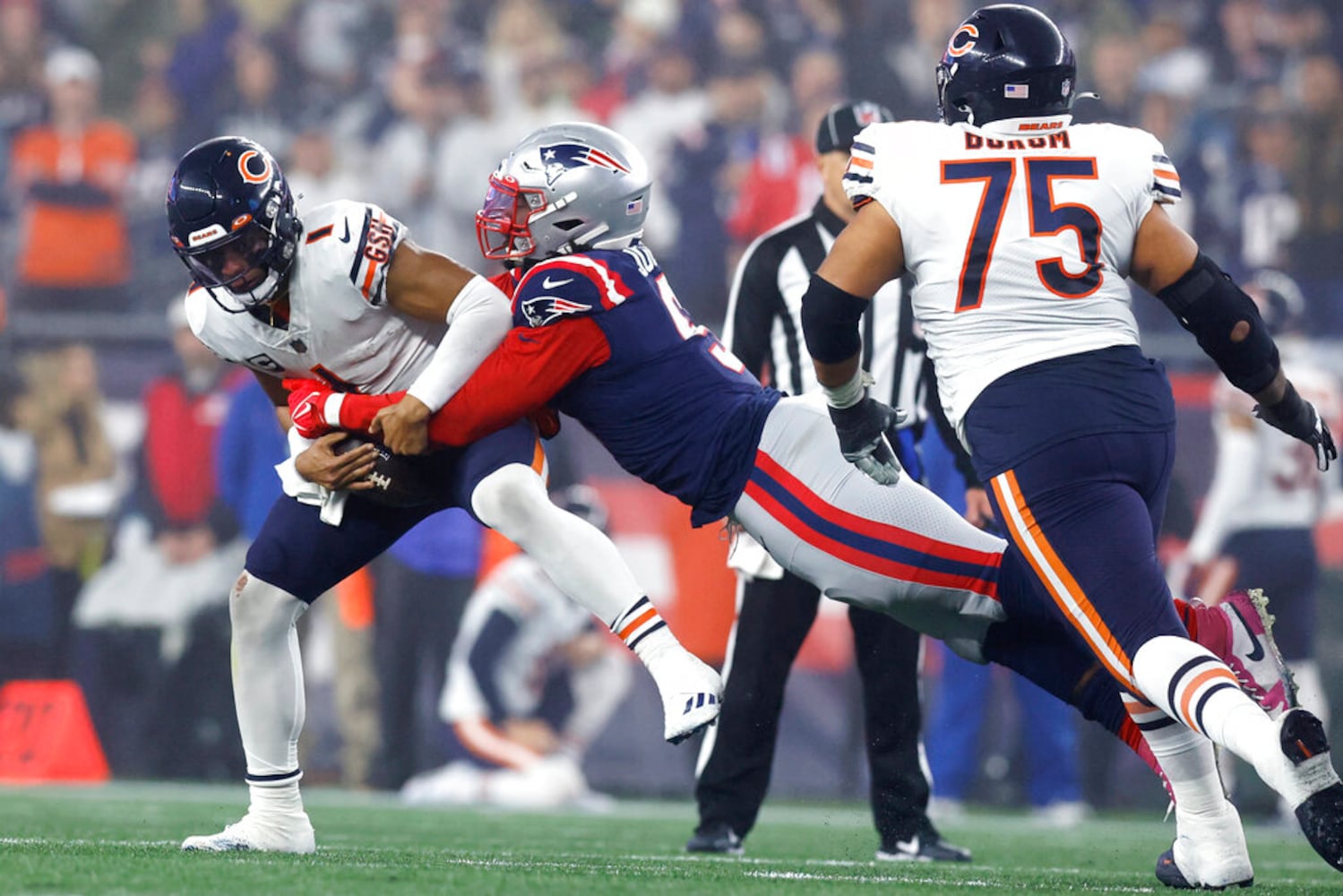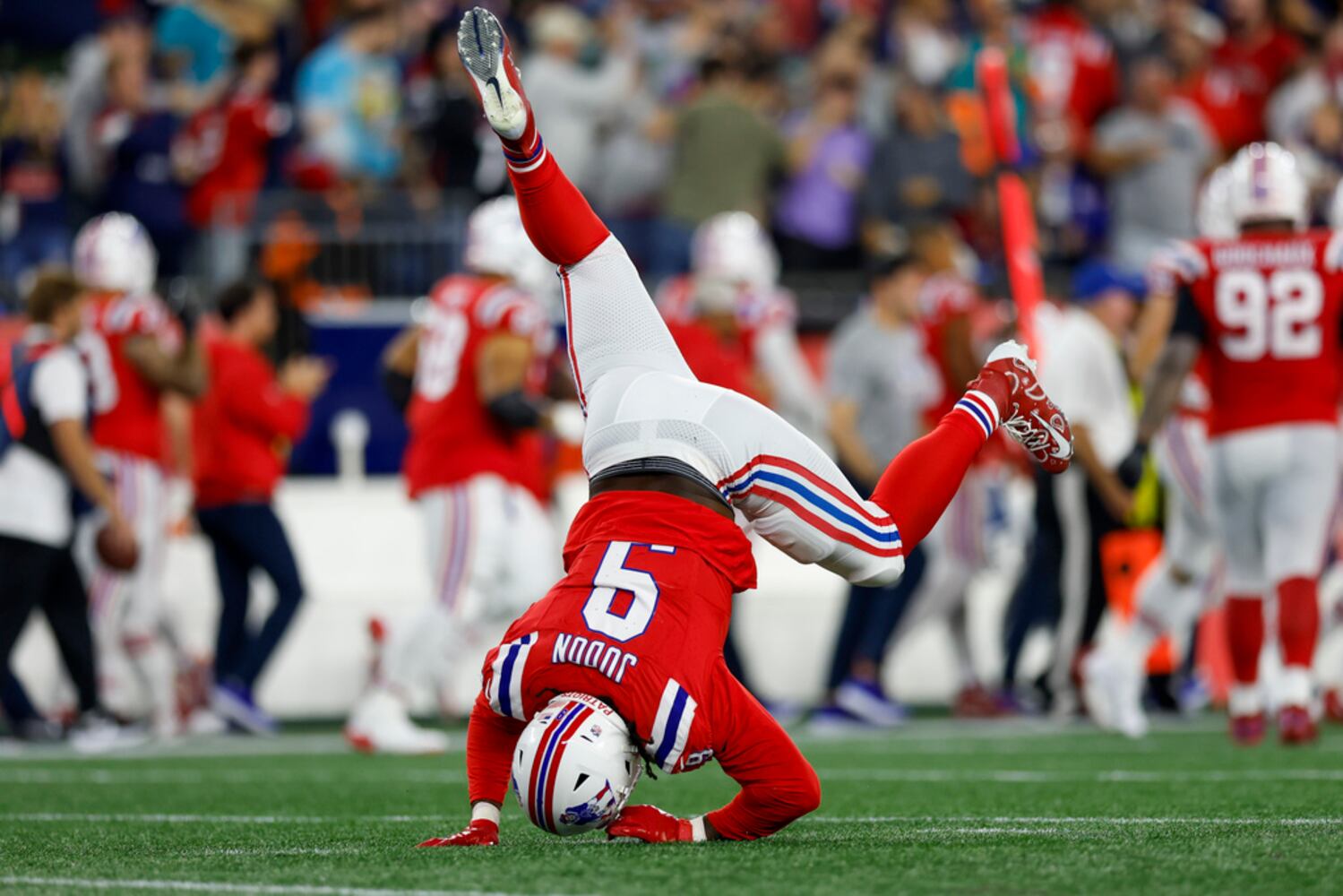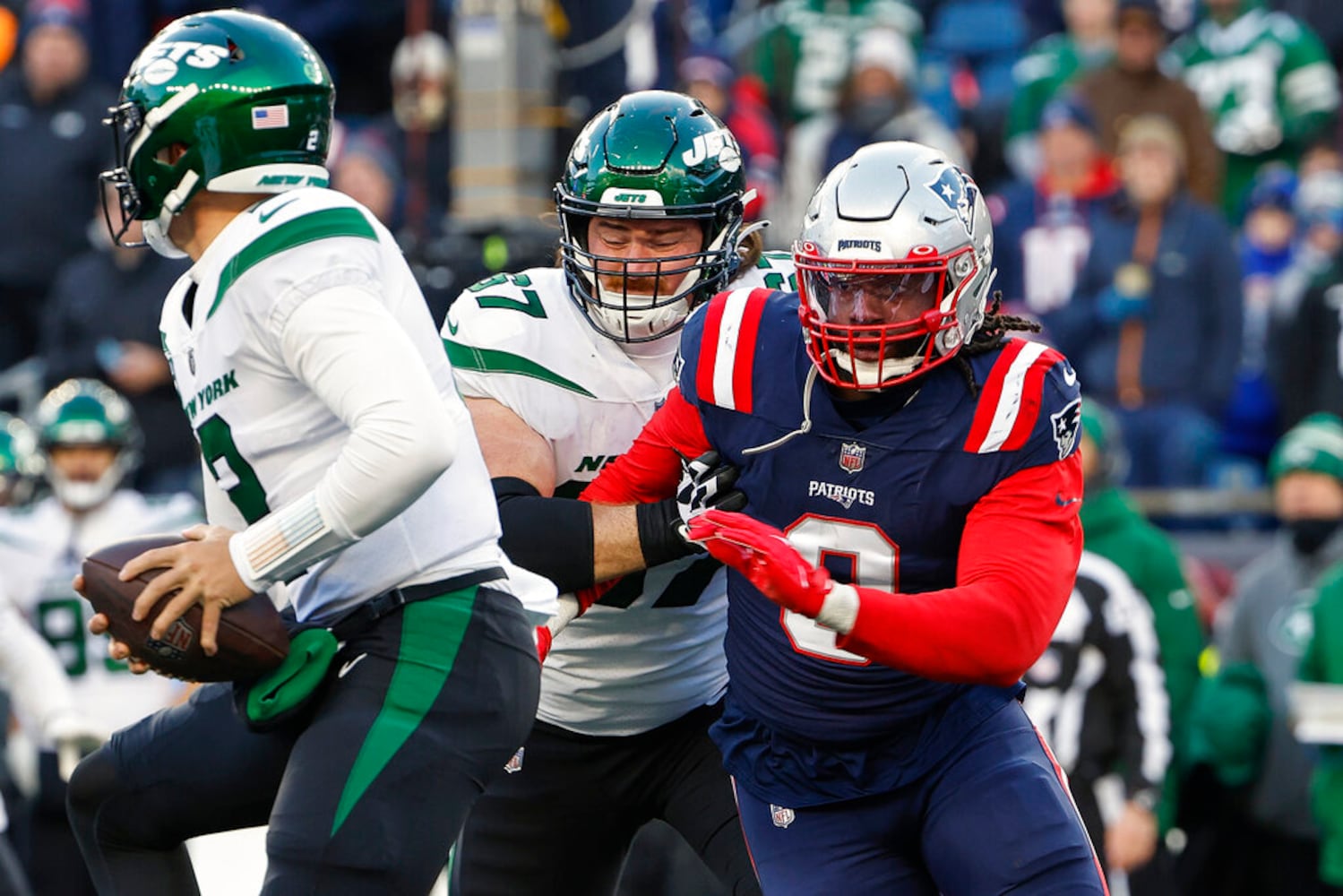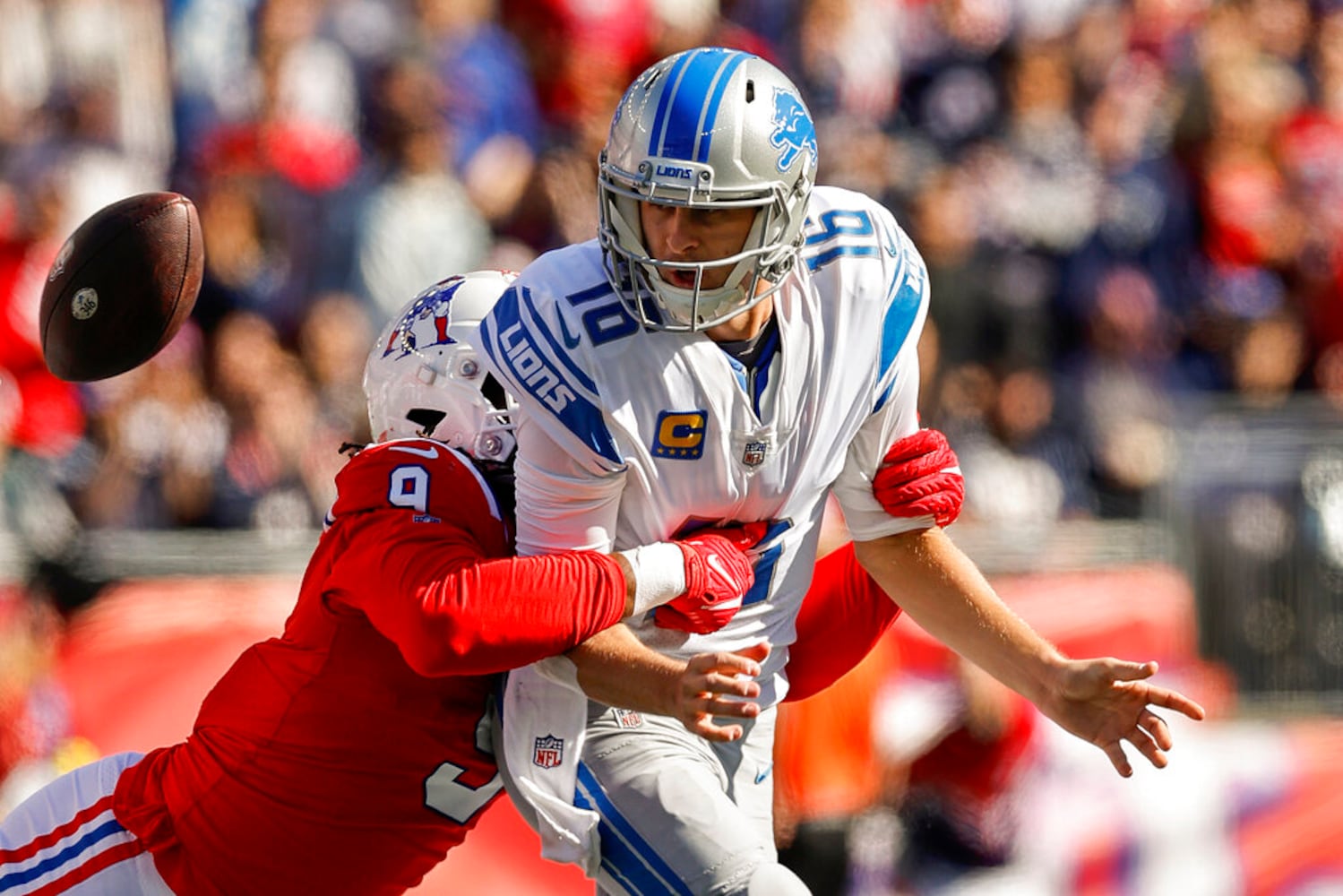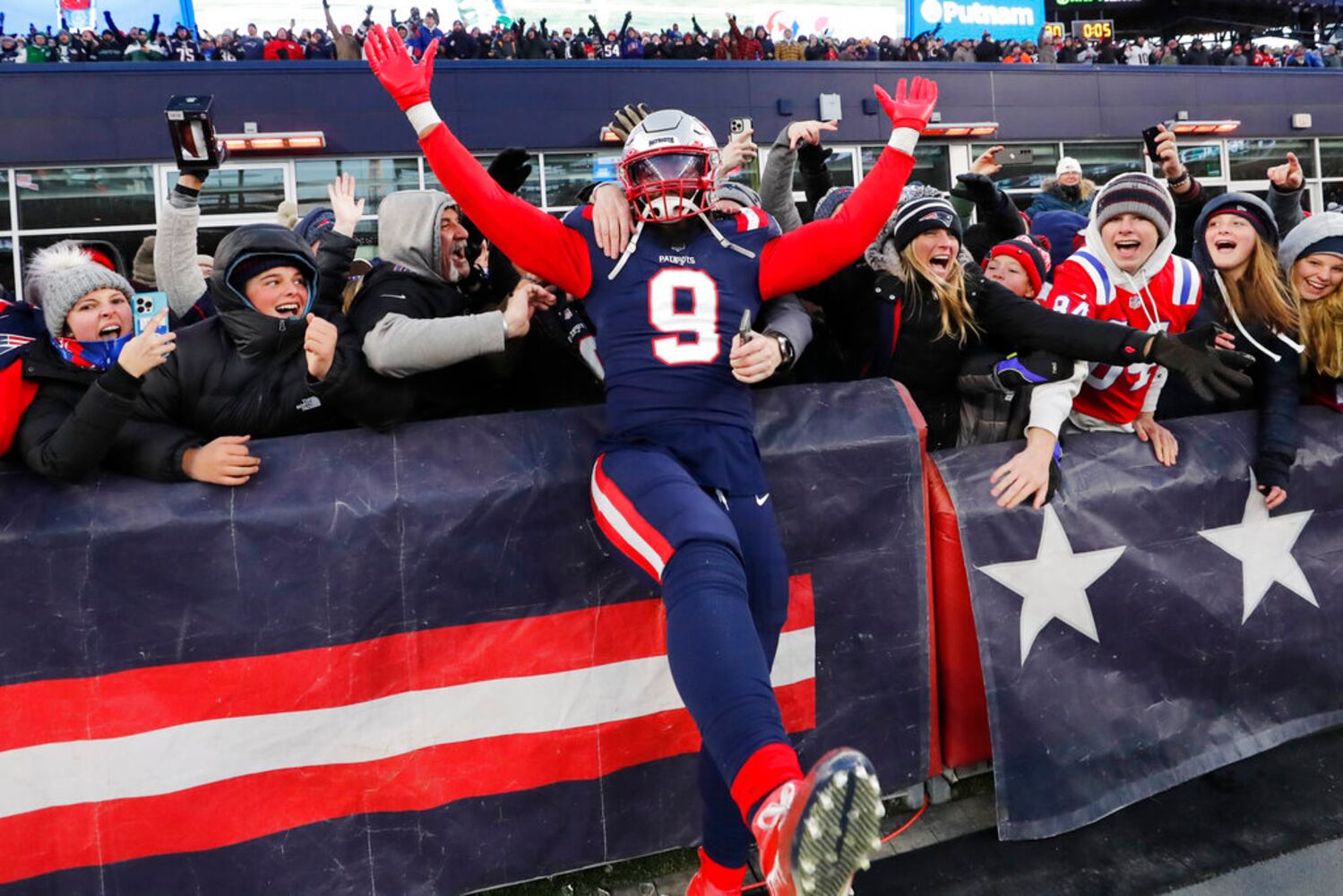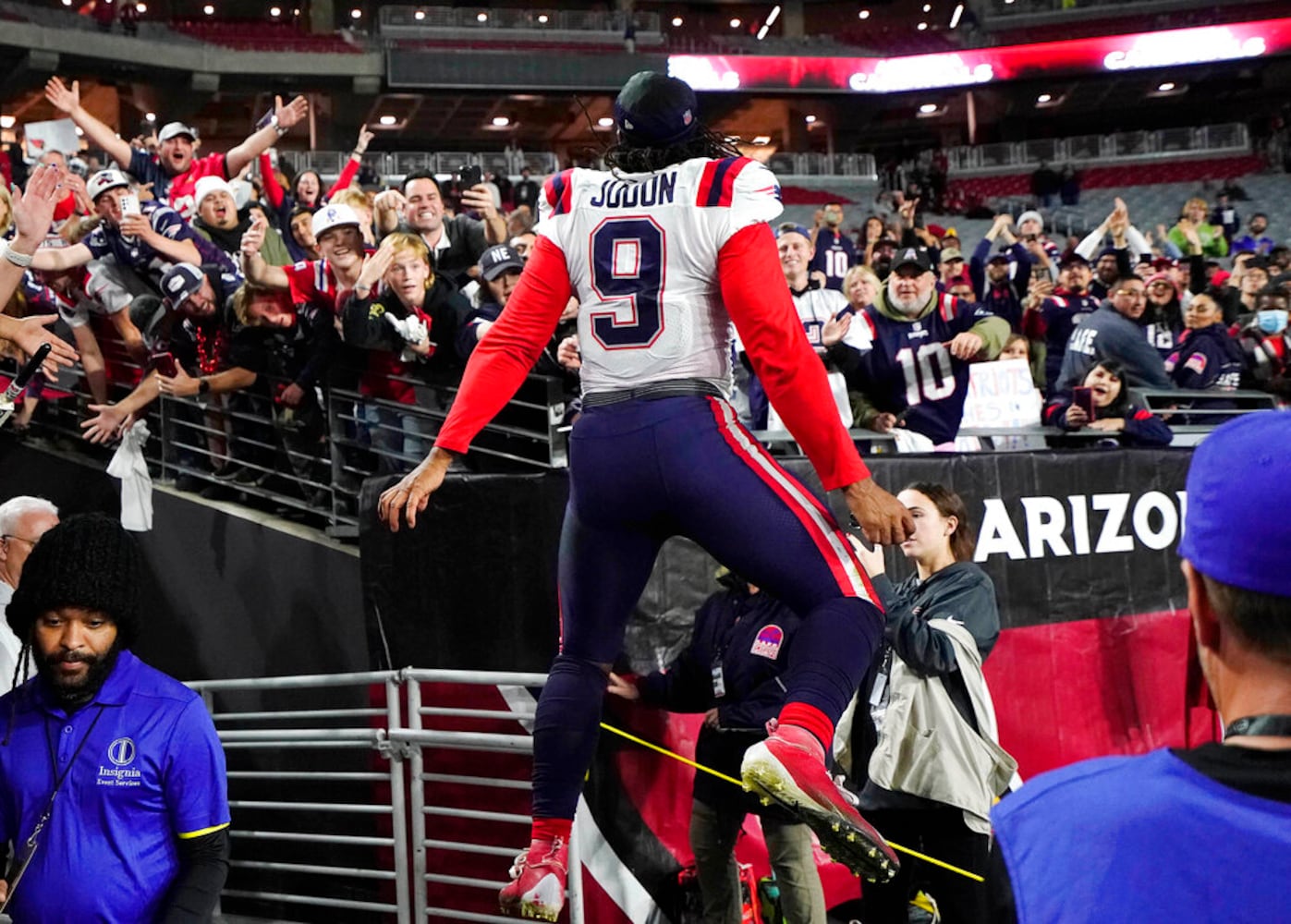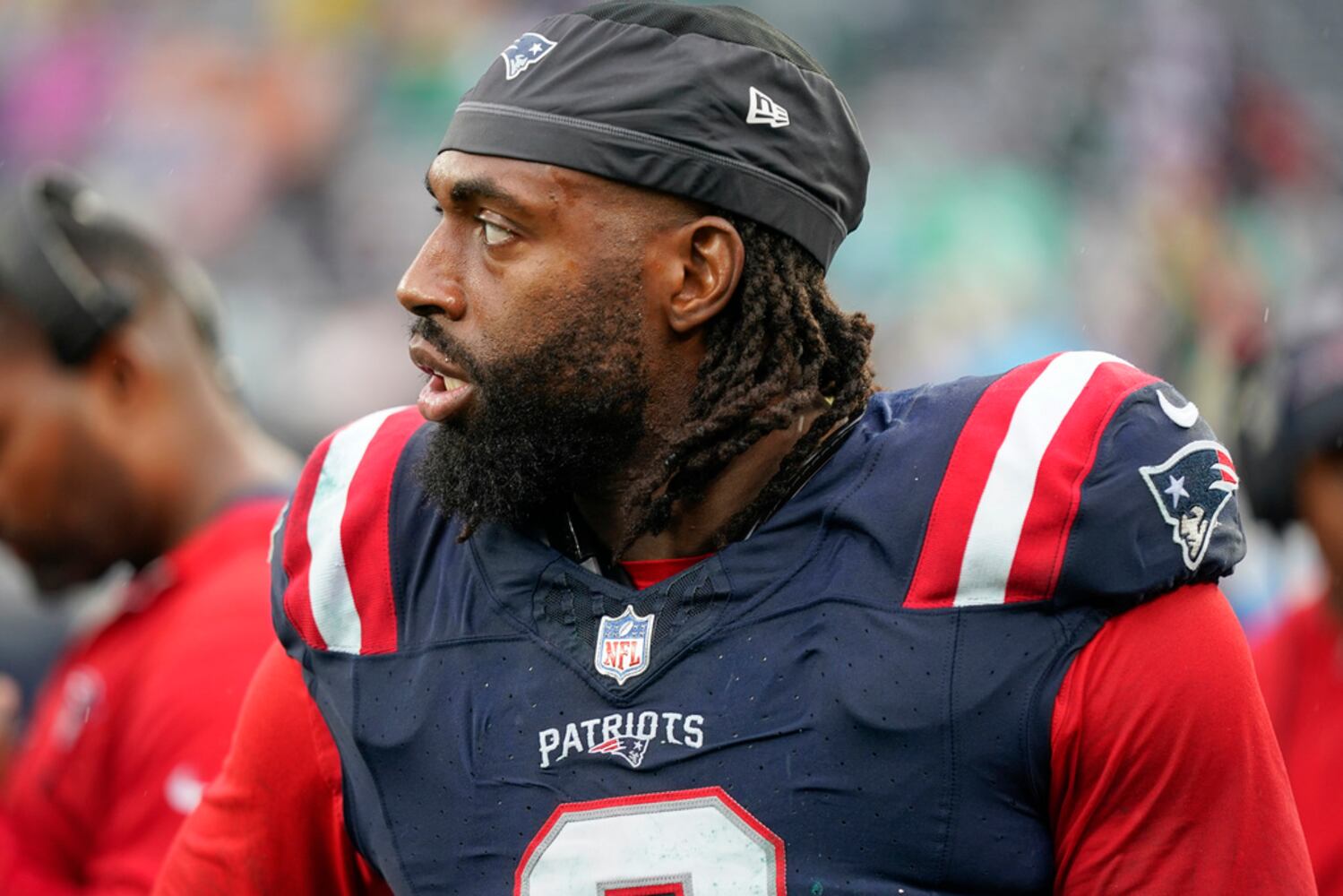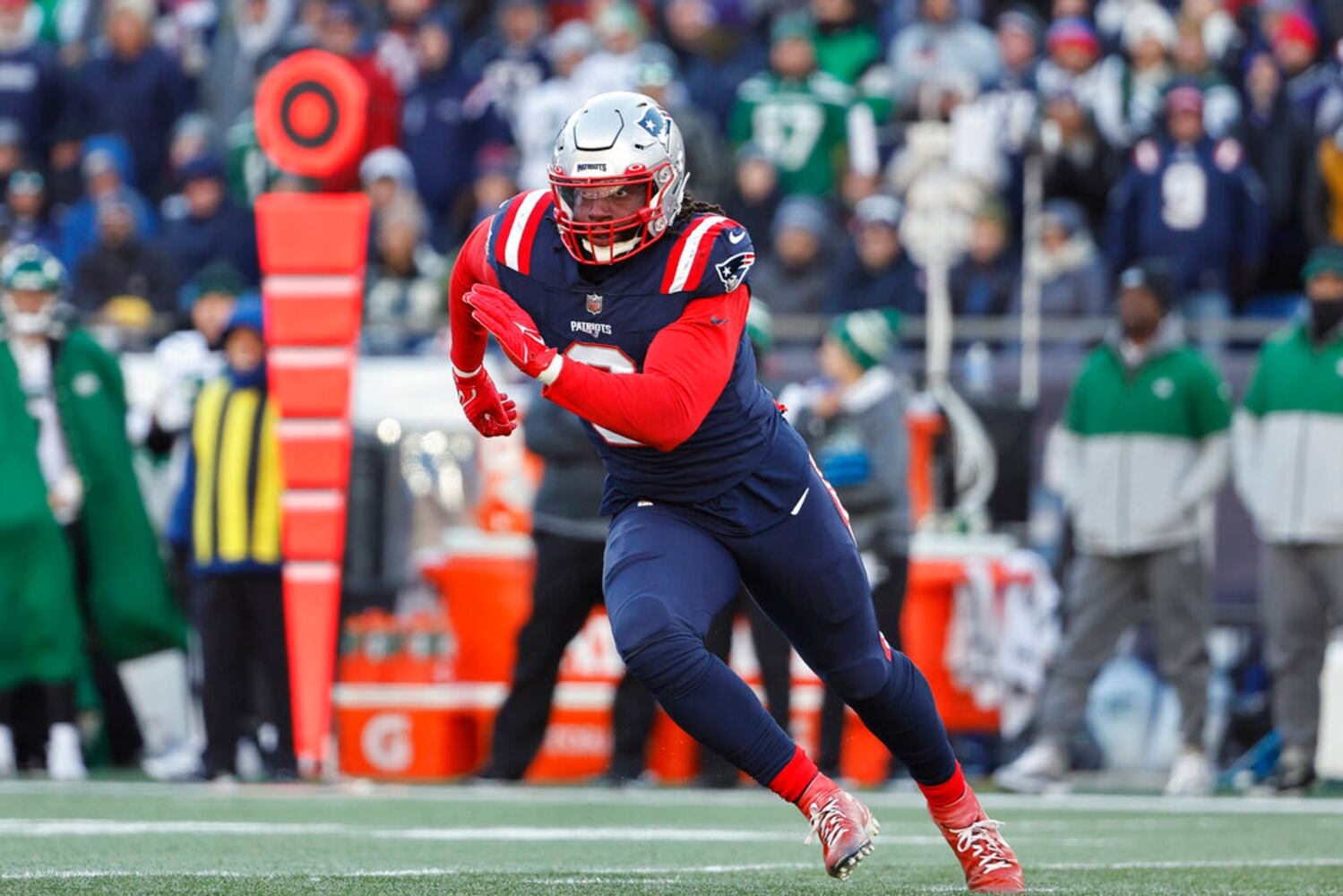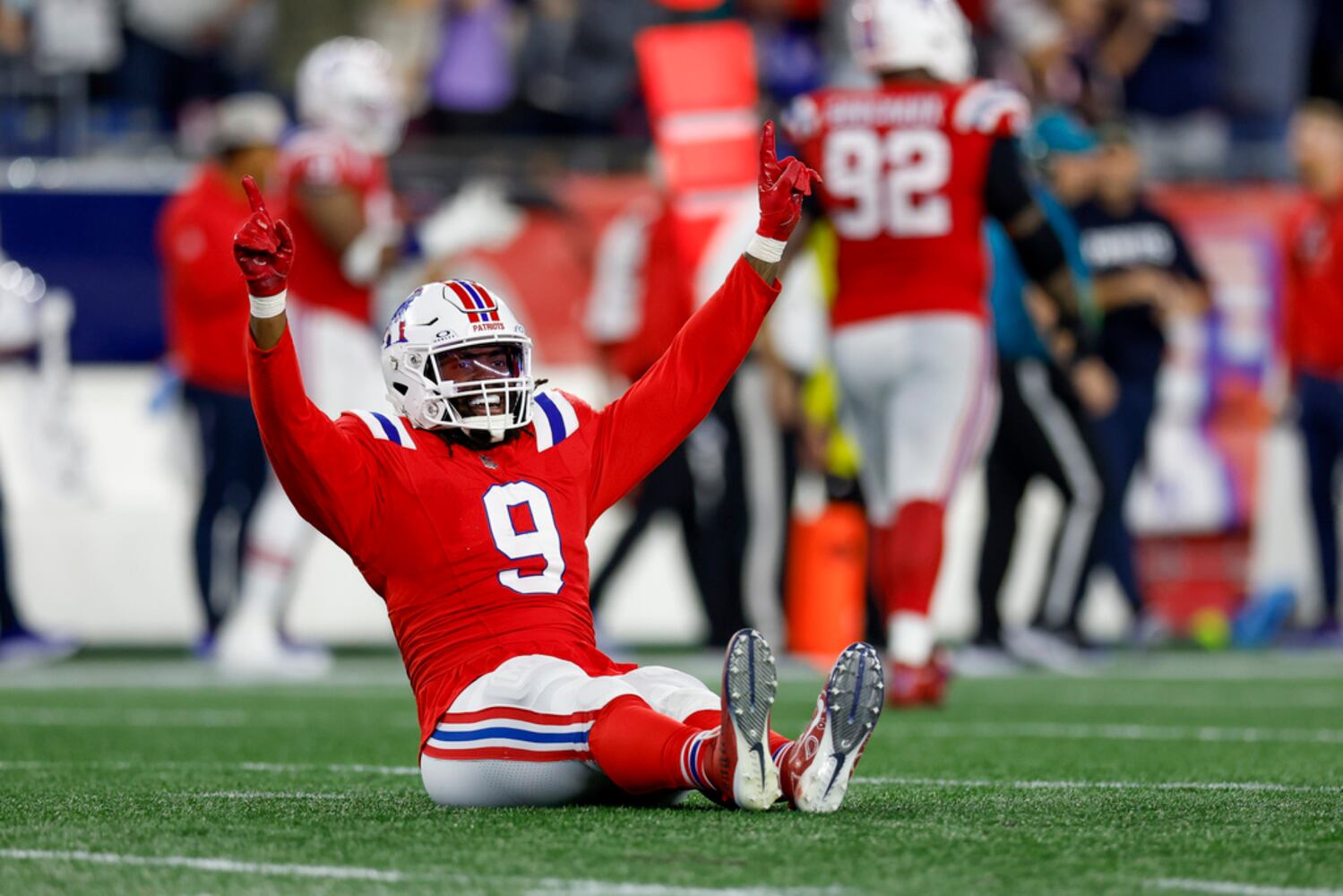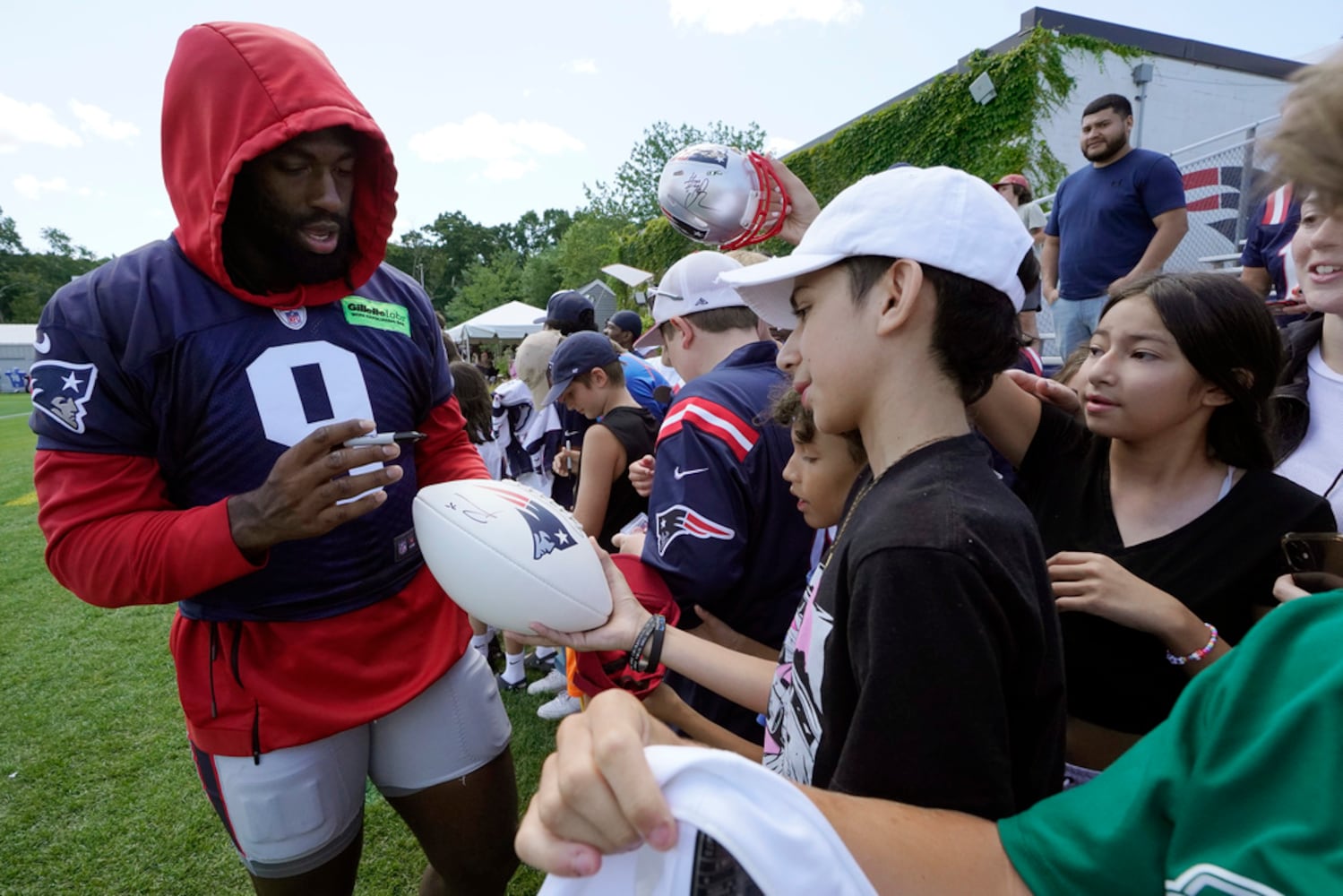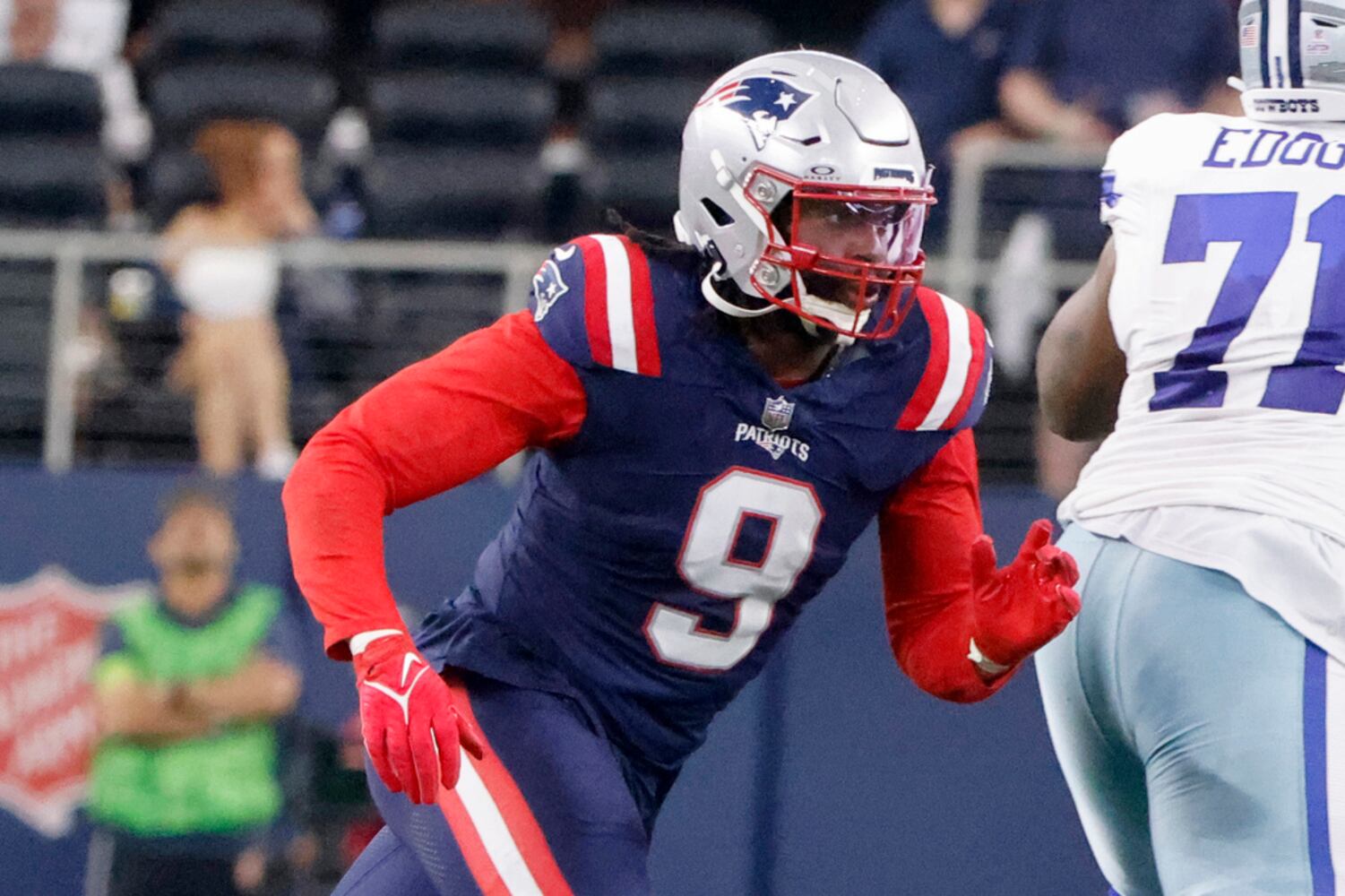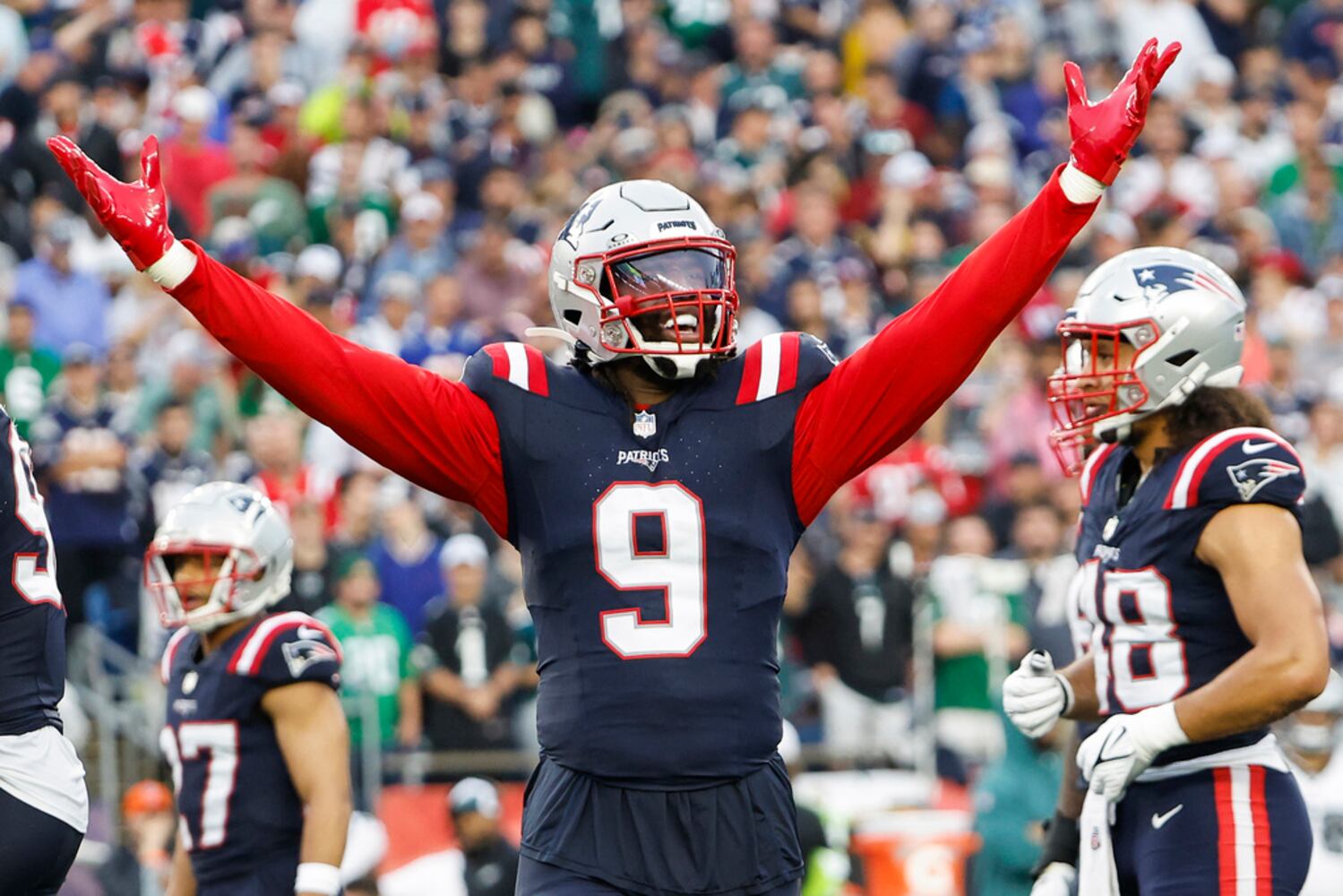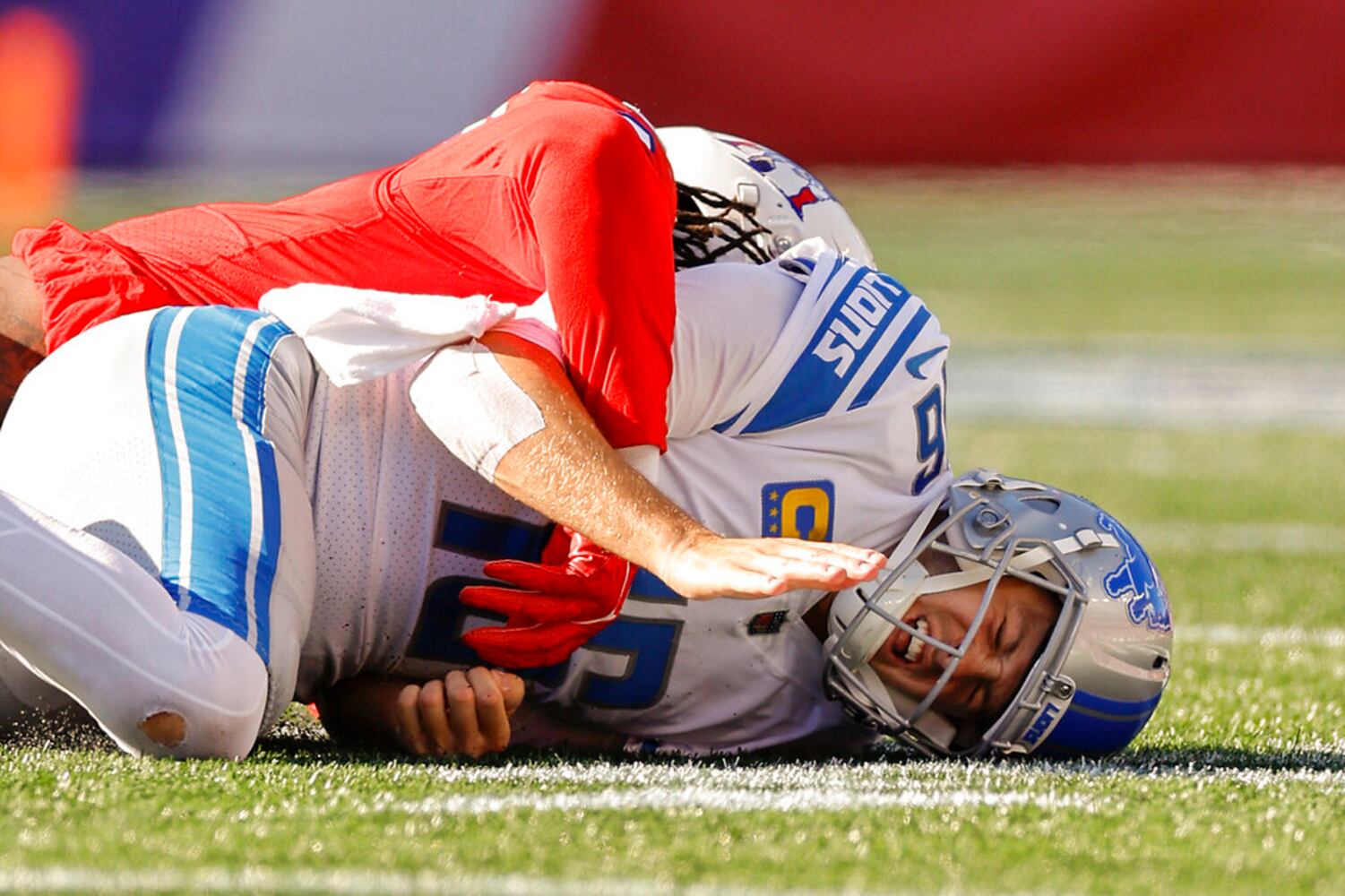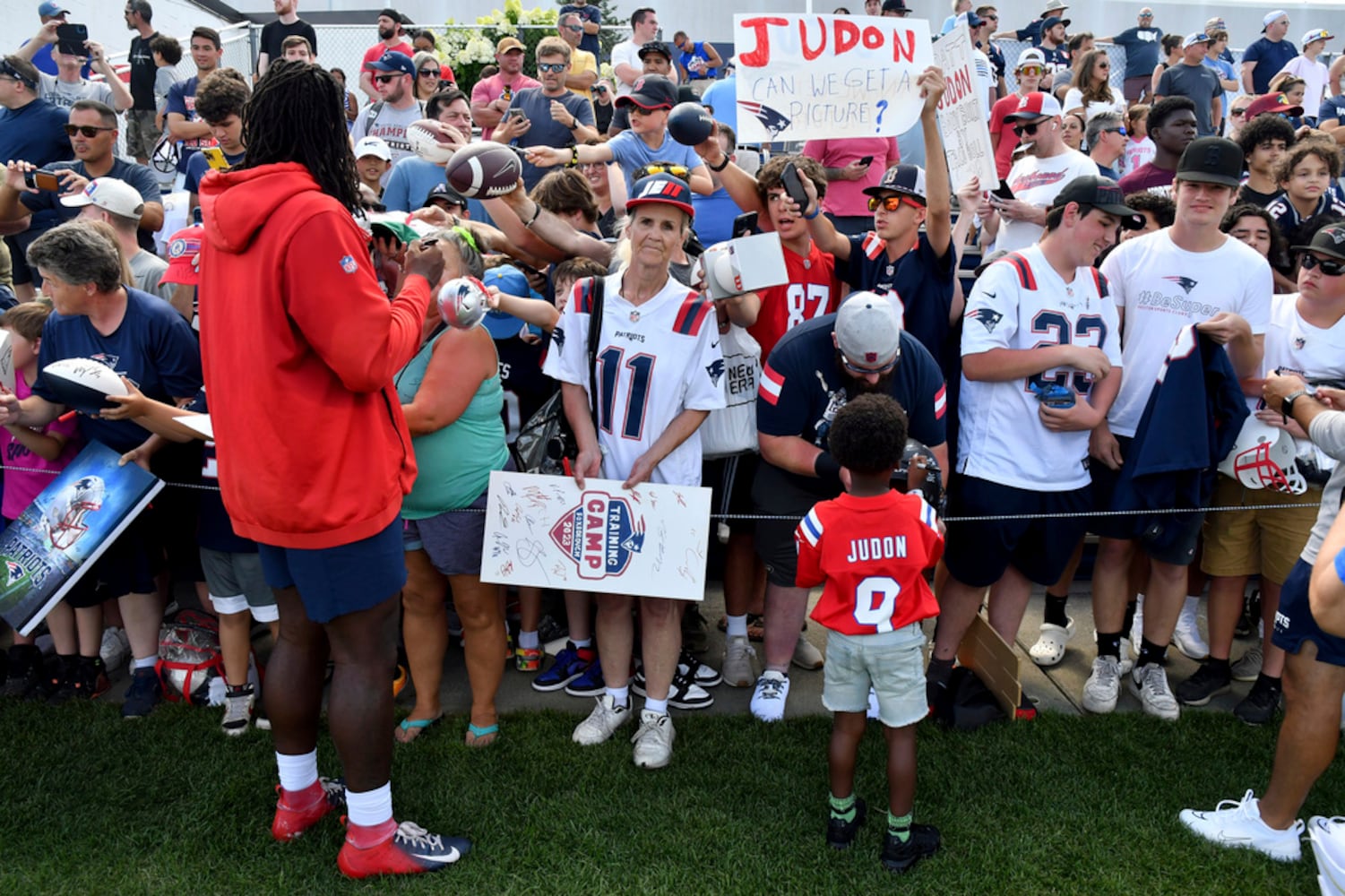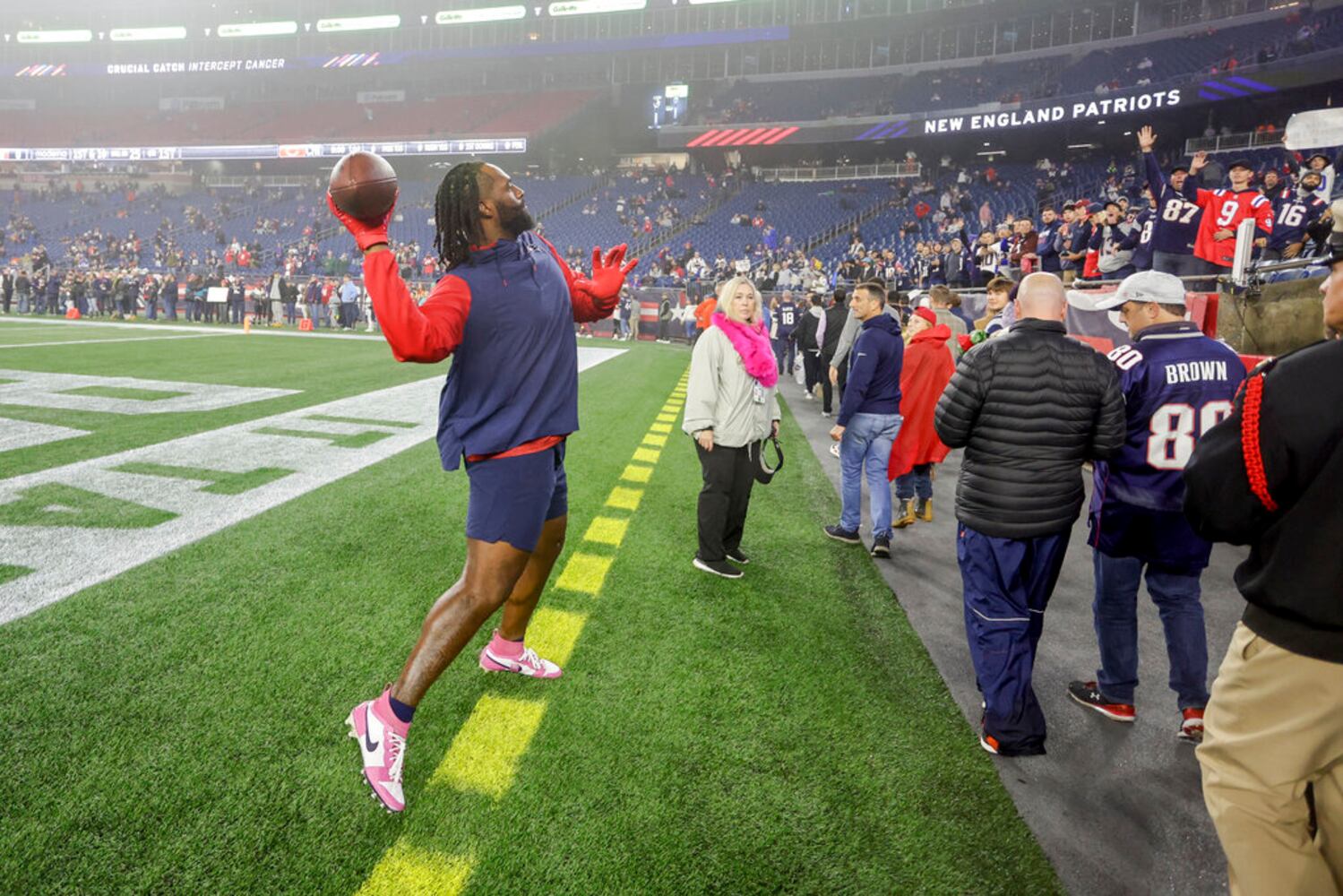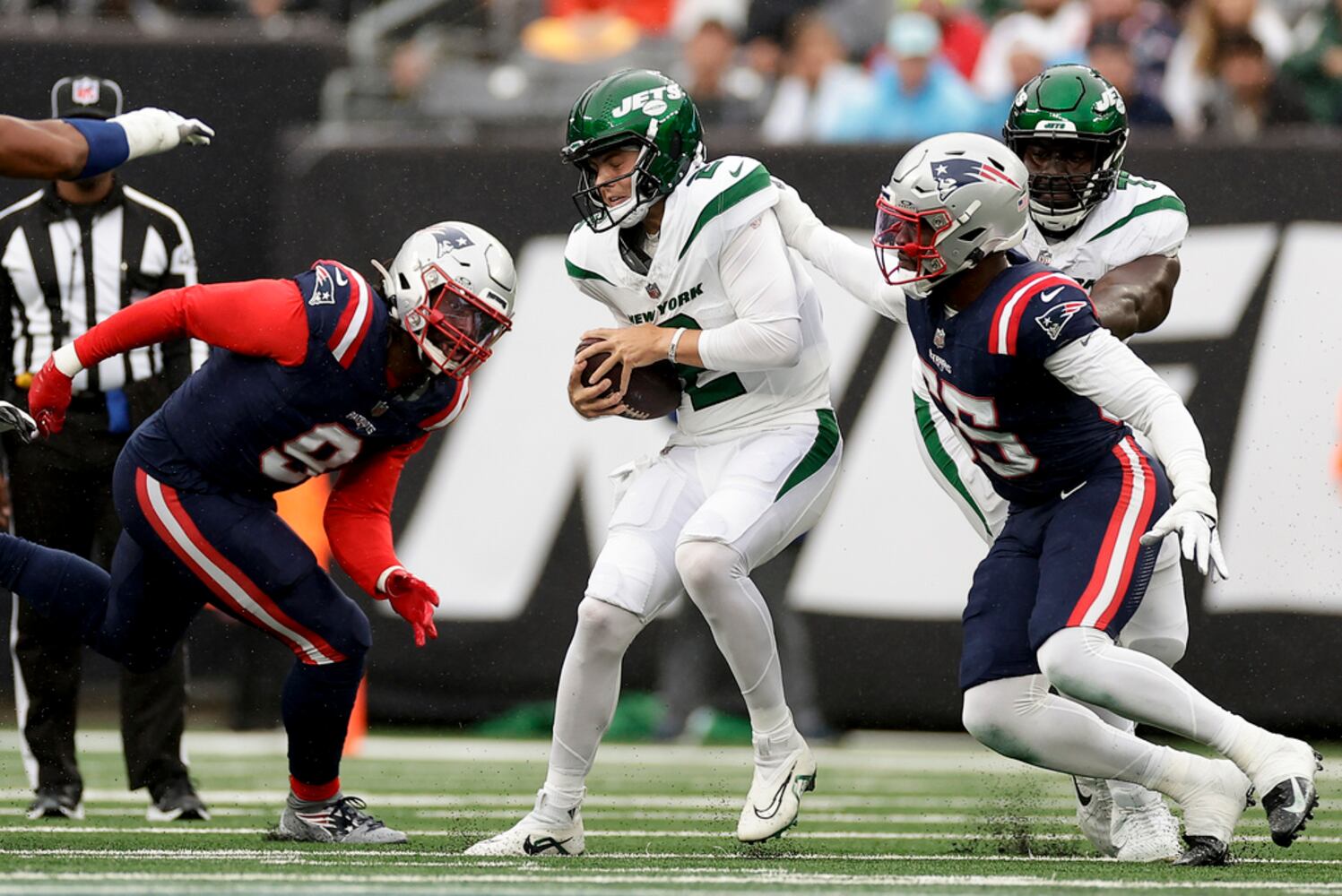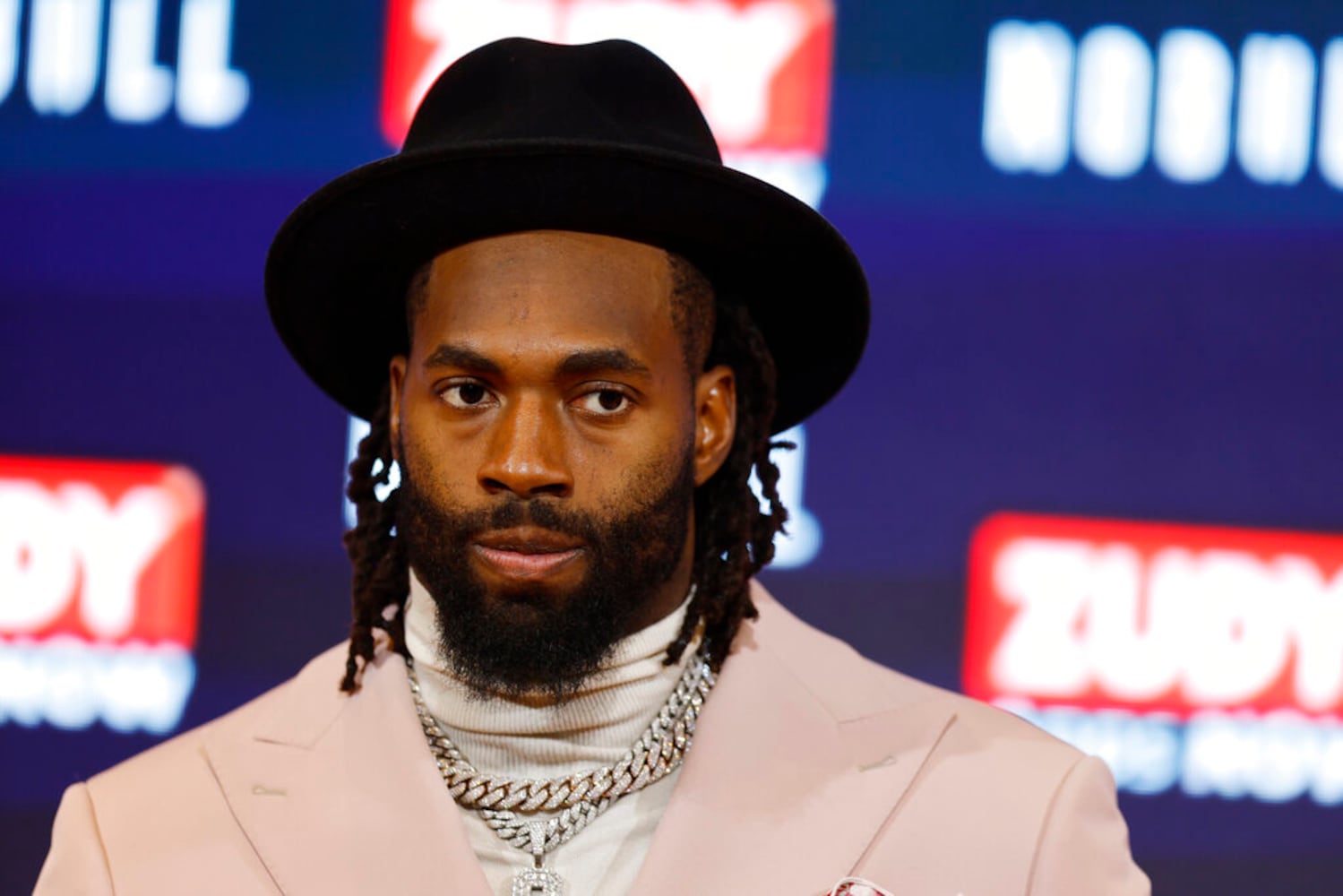Without question, there are potential drawbacks to the Falcons’ trade for New England Patriots edge rusher Matthew Judon.
He turns 32 on Thursday, meaning his best years are probably behind him. He is coming off of a season-ending injury (a torn biceps suffered early in the 2023 season). The Falcons are giving up a third-round pick in the trade, a steep price. As he went into the final year of his contract, Judon and the Patriots were unable to come to an agreement on a new deal, meaning that New England didn’t believe he was worth what he thought he was. How uncertain were the Patriots – the team that knew Judon better than anyone – that he can continue to play to his standards?
That said, there’s a lot of reason to like what Falcons general manager Terry Fontenot has done for the team’s competitiveness for this season. Simply, he has addressed the team’s biggest weak point by bringing in a four-time Pro Bowler.
A team that really needs to get into the playoffs this year after missing it for the past six seasons has a much better chance to get there now. Fontenot and coach Raheem Morris made a play for the future when they used the No. 8 overall pick on quarterback Michael Penix Jr., passing on the immediate need of a pass-rushing threat.
But after an offseason in which Fontenot tried at different points to find a solution, the trade for Judon appears to finally fill the 2024 Falcons’ biggest hole. It is not hard to imagine quarterback Kirk Cousins feeling much better about his chances to lead the Falcons into the postseason now that he has a player who totaled 28 sacks in the 2021-22 seasons on his side.
Fontenot, Morris and defensive coordinator Jimmy Lake tried to assure doubters that the defense could make the pass rush work even with an edge-rushing group that consisted of three players who combined for 10 sacks last year (Arnold Ebiketie, Lorenzo Carter and James Smith-Williams) and a third-round draft pick (Bralen Trice). At the start of training camp, Lake said that “really, pass rush is all 11 (players).”
It was the next verse of a song that Falcons defensive coordinators have unconvincingly sung for years. It is not a coincidence that the defense has not had a double-digit sack producer throughout its six-year playoff drought. Last season, 11 of the 14 playoff teams had at least one player with double-digit sacks. Of the remaining three, one had three players who totaled 25 sacks and another had a trio with a combined 24.5. Of the past 10 teams to reach the Super Bowl, seven had at least one player with at least 10 sacks and the other three had players with 9.5, 9 and 7.5 sacks. Last season, the Falcons tied for 21st in sacks and then lost their top two sack producers in free agency (Calais Campbell and Bud Dupree, both with 6.5).
Early in camp, in a comment that proved prescient, Fontenot himself acknowledged the value of a dominant pass rusher while trying to urge calm.
“We do look at it like we’re talking about the whole front seven,” he said. “Yeah, it’d be great to have a specific outside (linebacker) that’s an impactful rusher. It’d be great to add a guy, but we look at it as a whole, and we like our front seven.”
A defense can play effectively without a game-changing pass rusher, but events made it clearer that it would be a big ask for the Falcons. Trice tore his ACL in last Friday’s exhibition game against Miami, the same game in which Ebiketie was underwhelming.
In the same game, safety DeMarcco Hellams suffered an ankle injury that will keep him out for an extended period. Barring another signing (more on that below), that likely means that the starting safety opposite All-Pro Jessie Bates III will be Richie Grant, whose subpar play last season elevated Hellams into the starting lineup.
A defense can use scheme and effective pass coverage to force the quarterback to hold onto the ball and give the pass rush more time to create pressure. But, at least on paper, it’s questionable how well such a plan would work, even with Morris’ reputation as a coach able to make more with less. Besides the question marks at edge rusher and with Grant, the player slotted to be the No. 2 corner, Mike Hughes, has never been a full-time starter in six seasons. (The Falcons have been pursuing two-time Pro Bowl safety Justin Simmons, a free agent. It’s not clear how the Judon trade impacts that strategy.)
But Judon can flip that formula. A pass rusher who can consistently bring heat makes the job easier for the rest of the defense by forcing the quarterback to throw the ball sooner. That’s why Fontenot said “it’d be great” to have an impactful rusher – because it is great to have such a player.
Again, there are uncertainties. Judon is coming back from a serious injury and he’s not young. For what it’s worth, according to a study of NFL players who suffered distal biceps ruptures (which appears to be Judon’s injury), post-surgery performance was similar to pre-injury performance. (Judon reportedly had surgery.)
Also, in the past three seasons, seven players have recorded double-digit sacks at 32 or older. The Falcons won’t ask Judon to be a unicorn.
The Fontenot-Morris team clearly doesn’t mind making waves. The trade follows the drafting of Penix and the signing of a 35-year-old quarterback (36 on Monday) coming off a ruptured Achilles. And remember, on top of the third-round pick they sent to the Patriots, the Falcons already have been docked a fifth-round pick in the 2025 draft for tampering in free agency.
This is not a risk-free move. But standing pat would have been a risk of its own.
About the Author
Keep Reading
The Latest
Featured
